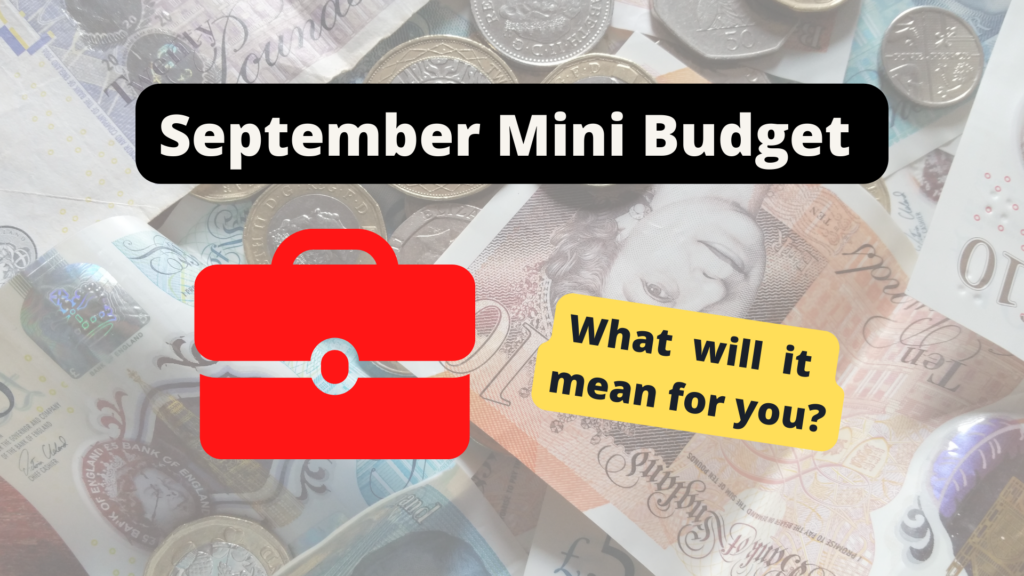23 September 2022

The new chancellor, Kwasi Kwarteng, has delivered a mini-Budget featuring a string of tax cuts. The stated aim is to ‘deliver growth for the economy’.
This mini-budget had been billed as new Prime Minister Liz Truss’ response to the ongoing cost of living crisis.
Reversing National Insurance increase
A 1.25 per cent cut to National Insurance was announced, effectively reversing the increase announced last year by Boris Johnson, designed to help fund the NHS and social care.
The ‘Health and Social Care Levy’ was due to come in in April 2023 at a rate of 1.25 per cent. Liz Truss has now scrapped this plan. The new National Insurance rate will come into force on 6 November 2022.
If you pay National Insurance through Self-Assessment, this reduction means you’ll retain more income. The Treasury says that the new approach will save taxpayers an average of £330 each a year.
Income tax cuts brought forward
The basic rate of income tax has been cut by 1p to the pound. Rishi Sunak had originally promised to deliver this by 2024, but today it was announced that this would take effect in April 2023.
People earning between £12,571 and £50,270 will now pay income tax at 19%. This is the first time that basic rate income tax has been reduced since 2008. Estimations are that this will mean £170 more per person, per year, for 31 million taxpayers.
The chancellor also announced that the 45% tax band for people earning more than £150,000 a year will be scrapped from April 2023. They will pay income tax at 40%, along with anyone else earning a salary of more than £50,271.
Energy support for businesses
Details of the Energy Bill Relief Scheme were announced on 21 September. The scheme sets discounted gas and electricity unit prices on non-domestic contracts for six months, starting on 1 October.
No increase to corporation tax
Previous plans to gradually raise corporation tax 25 per cent have also been scrapped. Corporation tax will remain at the rate of 19 per cent. It was originally scheduled to increase in April 2023.
Other announcements
Another key move in the mini-budget was a permanent cut to stamp duty.
Property buyers will now pay no stamp duty on the first £250,000 of a property purchase (up from £125,000), while first-time buyers will only pay stamp duty on properties over £425,000 (an increase from £300,000).
Other measures announced included the following:
- unlocking pension fund investments
- scrapping the bonus cap for city bankers
- introducing minimum service levels to reduce strike action in industries like the rail sector
- VAT-free shopping for overseas buyers
- the Bank of England to remain financially independent
- expansion of the Enterprise Investment Scheme
Will there be an autumn Budget later this year?
There is usually a Budget in October, and it is expected that this will still take place. Having said that, no date has been set at present.
Need a bit more clarity about what the Budget means for you or your business? As small business accountants in the Lune Valley, we provide tax advice, payroll services and much more. We’re here to help, so contact us today.

